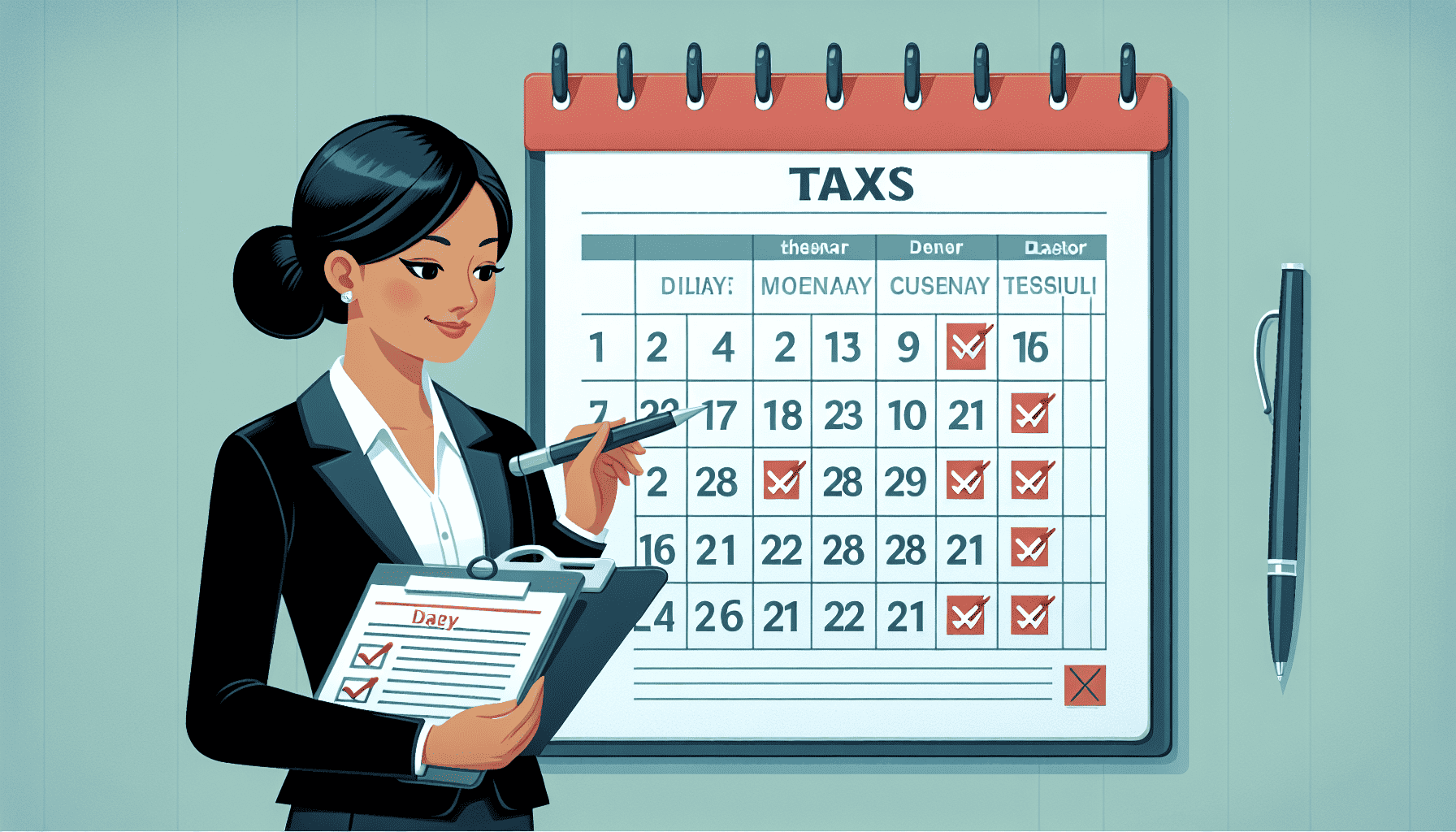As we prepare for the upcoming tax year, staying on top of key tax deadlines and understanding compliance requirements is crucial for individuals and businesses alike. Being proactive not only helps in avoiding last-minute stress but also ensures you remain compliant with the laws. Here's a comprehensive guide to managing your taxes efficiently in 2024.
Understanding Key Tax Deadlines for 2024
January 15, 2024: Fourth Quarter Estimated Tax Payment
For those who are self-employed or have other income that isn’t subject to withholding, this date is crucial. The fourth quarter estimated tax payment for 2023 is due, which covers income from October 1 through December 31, 2023.
February 28, 2024: W-2 and 1099-MISC Deadline
Employers must send Form W-2 to all employees under whom they paid wages during the year 2023. Similarly, businesses must distribute Form 1099-MISC to contractors, detailing their earnings. Filing these forms with the IRS is also required by this date.
April 15, 2024: Individual Income Tax Returns
The typical deadline for filing individual tax returns (Form 1040) and for paying any taxes owed for the year 2023 is April 15, 2024. This deadline applies to most taxpayers unless they file for an extension, which would extend it to October 15, 2024.
June 17, 2024: Second Quarter Estimated Tax Payment
By this date, you should make your estimated tax payment for the second quarter of 2024. This is especially important for freelancers and business owners to avoid penalties and interest charges.
September 16, 2024: Third Quarter Estimated Tax Payment
The third quarter estimated tax payment is due for income earned from June 1 through August 31, 2024. Keeping up with these payments helps prevent significant tax bills when filing the annual return.
October 15, 2024: Extended Individual Tax Returns
If you filed an extension, this is the final deadline to submit your individual tax return for 2023. Ensure all forms are completed accurately to avoid any administrative issues with the IRS.
Essential Compliance Tips
-
Organize Your Records: Keep all tax-related documents, such as receipts, invoices, and previous tax returns, organized and accessible. Utilizing digital tools can aid in categorizing and storing your records efficiently.
-
Stay Updated on Tax Laws: Tax laws can change yearly and differ by state, so staying informed is crucial. Consider consulting a tax professional to understand any changes that might affect your return.
-
Use Tax Preparation Software: Many individuals and businesses benefit from the accuracy and efficiency provided by tax preparation software. These tools are continually updated to align with the latest legal requirements.
-
Consider Professional Assistance: For complex tax situations or to ensure you’re taking advantage of all available deductions and credits, hiring a certified tax professional is wise.
-
Regularly Check IRS Correspondence: The IRS occasionally sends out notices or requests for information. Address any correspondence promptly to prevent misunderstandings or penalties.
Managing Tax Dates Effectively
Proactively managing tax dates requires a strategic approach:
- Set Reminders: Utilize digital calendars or apps to set due date reminders a few weeks in advance.
- Budget for Taxes: Allocate funds throughout the year for tax liabilities to prevent financial strain at deadline time.
- Automate Payments: Where possible, automate estimated tax payments to avoid missing any deadlines.
By being well-organized and informed, individuals and businesses can streamline their tax filing process and maintain compliance throughout 2024. This not only saves time and money but also helps you steer clear of potential penalties, allowing you to focus on more rewarding aspects of your financial health.
